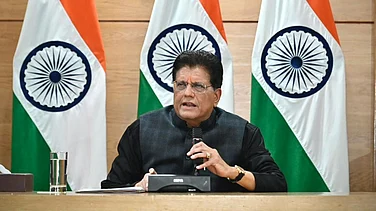
White House plans to fight lawsuits challenging the new $100,000 H-1B filing fee
Administration says the fee curbs abuse and protects US wages, while critics call it unlawful and anti-innovation
US Chamber of Commerce and other groups have sued in different courts to block the rule
The US government said it will defend in court its move to introduce a $100,000 fee on new H-1B visa petitions, arguing that the program has been misused for years and needs reform to safeguard American workers. “The administration will fight these lawsuits in court,” said White House Press Secretary Karoline Leavitt on Thursday.
Leavitt also stated that the administration would contest lawsuits filed against the new visa fee, which has drawn criticism from business and industry groups.
“For far too long, the H-1B visa system has been spammed with fraud, and that’s driven down American wages. So the President wants to refine this system, which is part of the reason he implemented these new policies. These actions are lawful, they are necessary, and we’ll continue to fight this battle in court,” she added.
This came days after the US Chamber of Commerce challenged the policy in a Columbia district court, labelling it “misguided” and “plainly unlawful”. It also warned that it could undermine American innovation and competitiveness.
In a separate case, unions, employers, and religious groups have also sued in a federal court in California.
The new rule was formalised on September 19, when US President Donald Trump signed a proclamation titled “Restriction on Entry of Certain Non-immigrant Workers”, which praised the H-1B visa fees to $100,000 for new applications.
The US Citizenship and Immigration Services (USCIS) data revealed that Indian nationals account for about 71% of all approved H-1B applications in recent years.
Earlier this week, the USCIS issued new guidelines clarifying that the US $100,000 charge will not apply to those seeking a change of status or extension of stay under the H-1B category.
In its lawsuit, the US Chamber of Commerce contends that the policy oversteps presidential authority and breaches immigration law. It noted that thousands of highly skilled workers enter the US on H-1B visas every year, boosting the economy, and warned that such a steep fee could deter companies from recruiting global talent.
Currently, the US grants up to 65,000 H-1B visas annually, with a separate quota of 20,000 for applicants with advanced degrees from American universities.
Meanwhile, seven US lawmakers including both Democrats and Republicans have written to Trump and Commerce Secretary Howard Lutnick requesting the government to withdraw the $100,000 fee on H-1B visas. They have stated that the recent changes could harm the country’s innovation-driven economy and weaken its global competitiveness.
While the H-1B visa system does need some changes to better align with American values and workforce needs, the new rules which specially include the $100,000 annual fee will make it difficult for many employers to hire and retain skilled foreign workers, they said in a joint statement.
They further mentioned that the uncertainty around the new visa proclamation could disrupt the operations of many innovation-driven employers. Thereby, the members asked for a bipartisan approach to high-skilled immigration reform that strengthens the US talent pipeline, prevents visa misuse and creates more job opportunities for American citizens.






























